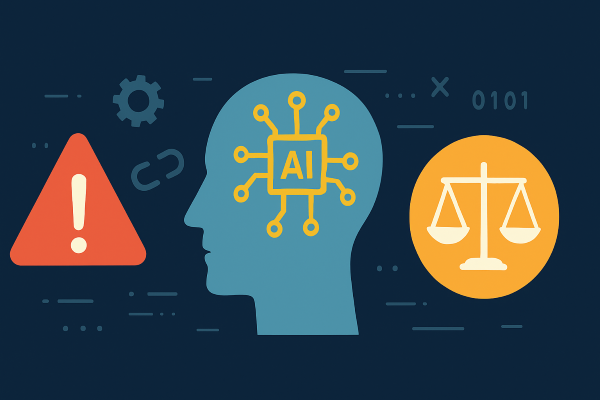
The Ethical Considerations of Using AI in Small Business
Artificial Intelligence (AI) is revolutionizing small businesses, offering tools to enhance efficiency, customer engagement, and market competitiveness. However, its adoption raises critical ethical questions that demand careful consideration. Small businesses must navigate these challenges responsibly, from safeguarding data to ensuring fairness. This essay examines the ethical implications of AI use in small businesses, structured around key concerns.
Data Privacy and Security
A significant ethical issue is the handling of customer data. Small businesses often leverage AI for tasks like targeted marketing or inventory forecasting, relying on sensitive information such as purchase habits or contact details. Without proper safeguards, this data is vulnerable to breaches or misuse.
For example, a café using AI to personalize offers might expose customer preferences if security is lax. Small businesses, often resource-constrained, may find it challenging to match the cybersecurity investments of larger firms. Ethically, they must secure explicit consent for data use, anonymize information where feasible, and comply with regulations like GDPR or CCPA to maintain trust and protect customers.
Mitigating Algorithmic Bias
AI systems can perpetuate biases embedded in their training data, posing ethical risks. For example, a small business using AI for recruitment might deploy a model that unintentionally favors certain demographics, resulting in discriminatory hiring. Similarly, AI-driven pricing tools could unfairly adjust costs based on customer profiles, alienating segments of the market.
To address this, small businesses should regularly audit AI outputs, use diverse datasets, and seek expert guidance to ensure fairness. Transparency about AI decision-making processes further promotes accountability, reassuring stakeholders that outcomes are equitable and unbiased.
Impact on Employment
The automation of tasks through AI raises concerns about job displacement. In small businesses, where personal relationships often define the workplace, replacing roles like customer service or accounting with AI can disrupt livelihoods. For instance, a boutique adopting AI for inventory management might reduce staff hours, affecting local employment. Ethically, businesses should strive to balance efficiency with human welfare by retraining employees for new roles or using AI to complement, not eliminate, jobs. Investing in workforce development demonstrates a commitment to community well-being while harnessing AI’s benefits.
Transparency in AI Use
Transparency is essential when integrating AI into customer interactions. Customers deserve to know when they’re engaging with AI, such as through chatbots or recommendation systems. Misrepresenting AI as human risks eroding trust, particularly in trust-sensitive sectors like financial advising.
Additionally, when AI errors occur, like a miscalculated sales forecast impacting a small retailer, businesses must own the mistake rather than deflecting to technology. Clear communication about AI’s role, capabilities, and limitations fosters credibility and strengthens ethical relationships with customers and partners.
Addressing the Digital Divide
Unequal access to AI technology creates ethical concerns about fairness across small businesses. Those in rural or economically disadvantaged areas may lack the resources or infrastructure to adopt AI, putting them at a competitive disadvantage compared to urban or wealthier counterparts.
This digital divide can exacerbate economic inequality as AI-enabled businesses gain market share. To promote equity, industry stakeholders should support initiatives like affordable AI tools or training programs, enabling all small businesses to benefit from AI without widening existing gaps.
Bottom Line
AI holds immense potential for small businesses, but its ethical challenges require proactive management. Businesses can adopt AI responsibly by prioritizing data security, addressing bias, supporting employees, maintaining transparency, and promoting equitable access. These efforts safeguard their reputation and contribute to a fairer economy. As AI evolves, small businesses must remain committed to ethical principles, ensuring technology serves as a force for good in their operations and communities.

 How AI Can Help Your Business
How AI Can Help Your Business